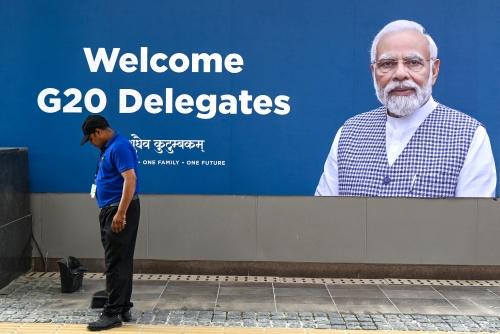International Monetary Fund backs G20 climate action
AFP | Washington
The Daily Tribune – www.newsofbahrain.com
The leaders of the International Monetary Fund and World Bank announced Thursday that the two institutions will collaborate more closely to tackle the "existential threat" posed by climate change.
"Climate change is a threat to global peace, security, economic stability, and development," IMF Managing Director Kristalina Georgieva and World Bank President Ajay Banga said in a statement.
To address what they described as the "existential threat of climate change," the leaders said the two lenders "need to help all our member countries integrate their climate and development goals."
The rare joint statement from the two leaders, at the G20 summit in India, underscores the strong emphasis that former Mastercard chief executive Ajay Banga has placed on the issue of climate change since he began his role in the summer.
The Biden administration, which nominated Banga to the position, has also been pushing development lenders to do more to support financing for climate change mitigation and adaptation.
The G20 meeting presents a real, if challenging, opportunity for member countries to come together to tackle the climate challenges laid out in the joint statement, according to an individual with knowledge of the matter.
Alongside climate change, the two leaders pledged to collaborate more closely to help prevent a build-up of debt vulnerabilities.
They also announced they would step up support for countries to "reap the benefit of new digital technologies while mitigating the risks, including on ways to improve cross-border payments."
Conflict
The IMF had earlier said in a report that climate change threatens to exacerbate conflict in fragile nations across the globe and lead to increased deaths.
While climate shocks alone may not trigger new unrest, the Washington-based IMF said, they “significantly worsen conflict, compounding fragility” such as hunger, poverty and displacement.
By 2060, conflict deaths could increase by 8.5 percent as a share of the population in so-called fragile and conflict-affected states (FCS), and by up to 14 percent in those nations facing an extreme increase in temperatures, the report said. In all, 39 countries that are home to nearly one billion people and 43 percent of the world’s poor are classified as FCS by the World Bank.
Related Posts

